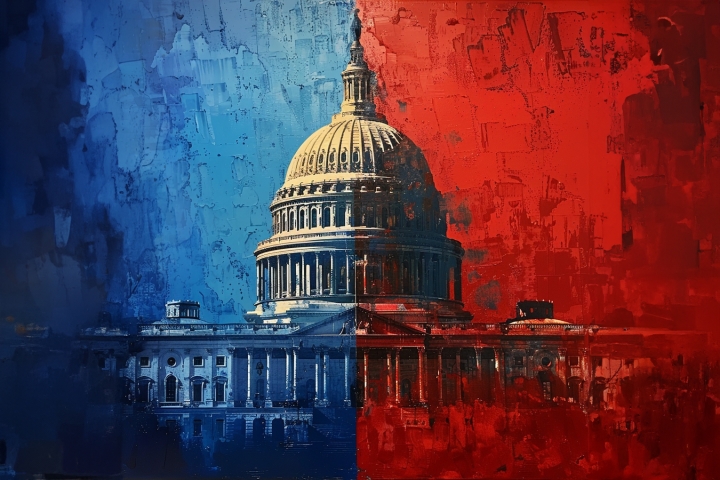Following the attack on the U.S. Capitol on Jan. 6, 2021, and efforts to overturn the results of the 2020 presidential election, many Americans have raised concerns about the future of democracy in the United States.
Yet the American public, including Democrats and Republicans alike, strongly oppose anti-democratic actions and partisan violence, according to a new study by the Polarization Research Lab.
“Democracy is under threat in America, but these data show we are not on the brink of a citizen-supported push toward authoritarianism,” says the lab’s director and study senior author Sean Westwood, an associate professor of government.
The results are co-authored by researchers at Stanford University and the University of Pennsylvania, and are published in the Proceedings of the National Academy of Sciences.
The research team surveyed the public to measure support for violations against democratic norms, political violence, and partisan animosity.
The researchers drew on two data sets: approximately 45,100 Americans of which 1,000 individuals were interviewed each week, from September 2022 to October 2023, which included the 2022 midterm elections; and a subset of 5,230 Americans, who were interviewed at multiple time points.
“When it comes to anti-democratic behavior, there is a misperception that citizens of one political party are more likely to violate democratic norms than the other, but that’s just not the case,” says lead author Derek Holliday, a postdoctoral fellow at the Polarization Research Lab.
Respondents were surveyed on their support for four democratic norm violations: 1) if the number of polling stations in areas that typically support the other political party should be reduced; 2) if a candidate who questions an election outcome should be more loyal to their own political party than election rules and the Constitution; 3) if current elected officials should consider ignoring court decisions issued by judges appointed by the opposing political party; and 4) if the government should be able to censor media that spends more time attacking their own political party than the other party.
The results show that most Americans support democracy, with just 17.2% of Democrats and 21.6% of Republicans supporting one or more of the four norm violations.
When the researchers looked at the data, support for each of the four democratic norm violations was almost identical for both parties. For example, support for reducing polling stations in areas dominated by the other party was 8.8% for Republicans and 9.2% for Democrats.
The norm violation that had the most support pertained to censoring partisan media, and had just under 20% support.
The findings also reveal decreasing levels of support for political violence. Although up to 59% of Americans think that members of the other political party support assault, actual support was 3% for assault, 2.4% for arson, 1.9% for assault with a deadly weapon, and 1.7% for murder. “There’s a massive mismatch between actual attitudes and how Americans view the other side,” says Westwood.
“Public opposition to anti-democratic actions and political violence was not only overwhelming, but also remarkably stable throughout the year,” says co-author Yphtach Lelkes, Polarization Research Lab co-director and associate professor of communication at the Annenberg School for Communication at the University of Pennsylvania.

While both Democrat and Republican respondents indicated that they strongly oppose loyalty to their own party rather than the Constitution in contested elections, a near majority of elected Republicans indicated they would be comfortable violating that democratic norm.
The researchers also examined if respondents who were represented by an elected official who supported overturning the 2020 election were more likely to support anti-democratic norms but found no such evidence.
“Support for norm violations doesn’t appear to form a divide between everyday Democrats and Republicans, but it is instead a divide between ordinary Americans who support democracy and elected officials who are pushing back against democratic governance,” says Westwood.
“It’s good news that the public are so uniformly opposed to democratic norm violations, but it’s bad news that everyday Americans continue to vote for elected officials who pose a threat to democracy.”
Polarization Research Lab co-director Shanto Iyengar, a professor of political science at Stanford University, also contributed to the study.
